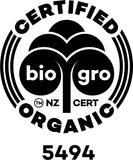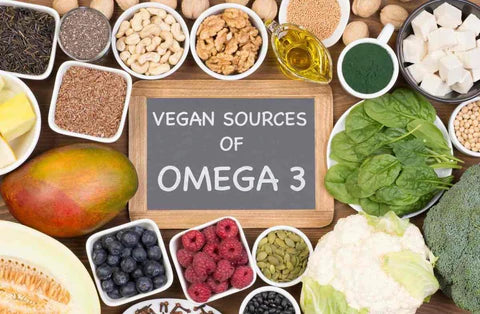ORGANIC, CERTIFIED ORGANIC, SPRAY FREE - WHAT DOES IT ALL MEAN?
We are often asked about the difference between Organic, Certified Organic and Spray free and it is definitely a very confusing topic. Contrary to belief Spray Free, Pesticide Free or Insecticide Free does not necessarily mean that the produce is organically grown.
In Europe, Japan, USA and Canada the use of the label "Organic" is protected by law. In New Zealand there are no such laws, so anyone can claim that their product is organic, even if they're not. This is very misleading for the consumer and the government is currently working on a National Organic Standard to alleviate this issue.
In New Zealand there are two organic certifying bodies, BioGro and AsureQuality. These have been approved by the government and for food and produce to be certified organic they must comply with the requirements of organic certification standards prescribed by these bodies. All certified organic products are checked, audited and certified. You can not trust an organic product is authentic unless it has a certification logo, with licence number below and the words Certified Organic on the product, as shown in the examples below:


If a product is labelled "Spray Free", the crop may have been spared from being sprayed with chemical pesticide however the soil may have been primed with artificial fertiliser or the seeds may have been dipped in fungicide. The claim "Chemical Residue free" may mean that although the crops may have been sprayed to control weeds or insects, there are no traces of these sprays in the final product.




